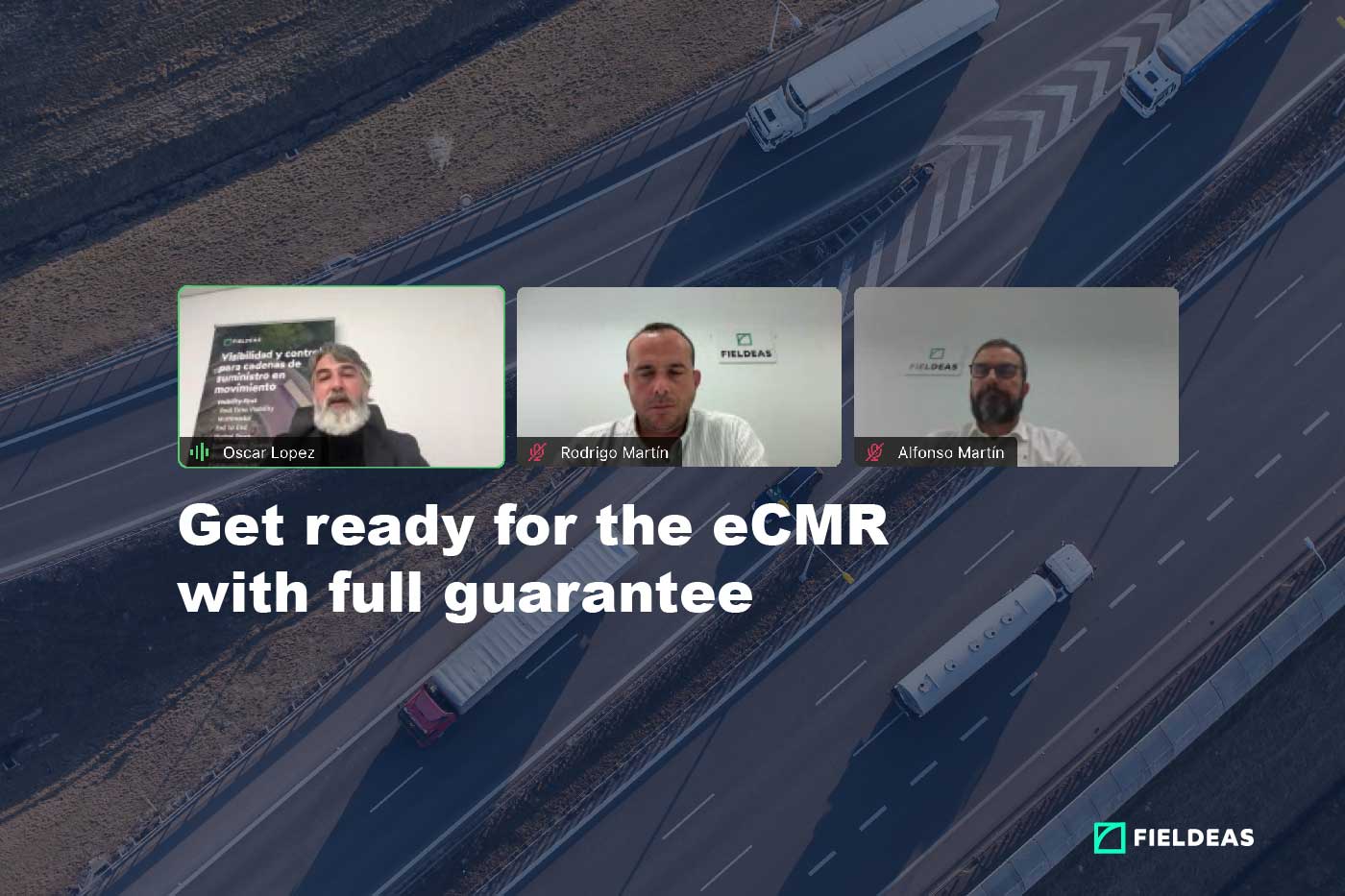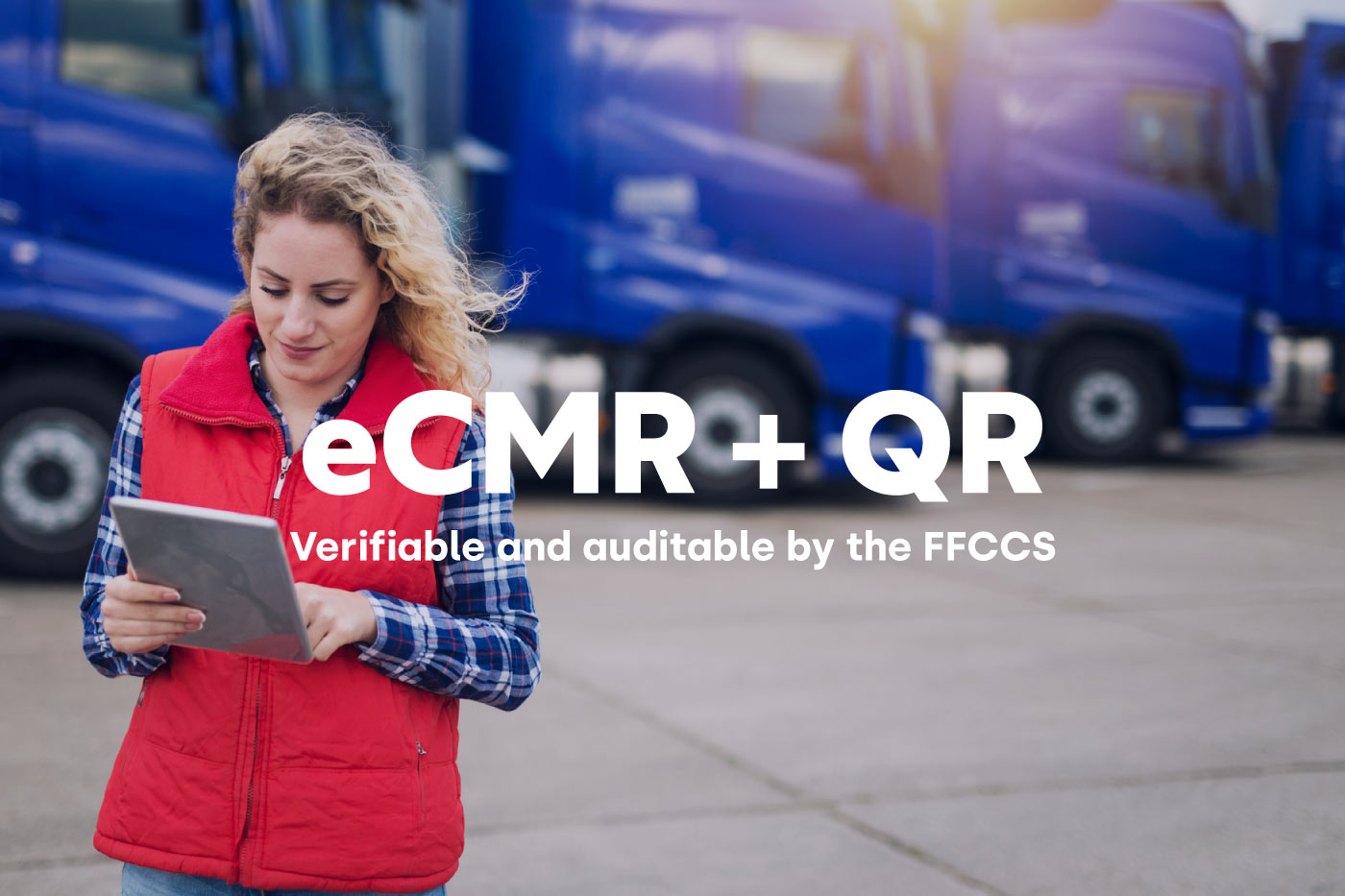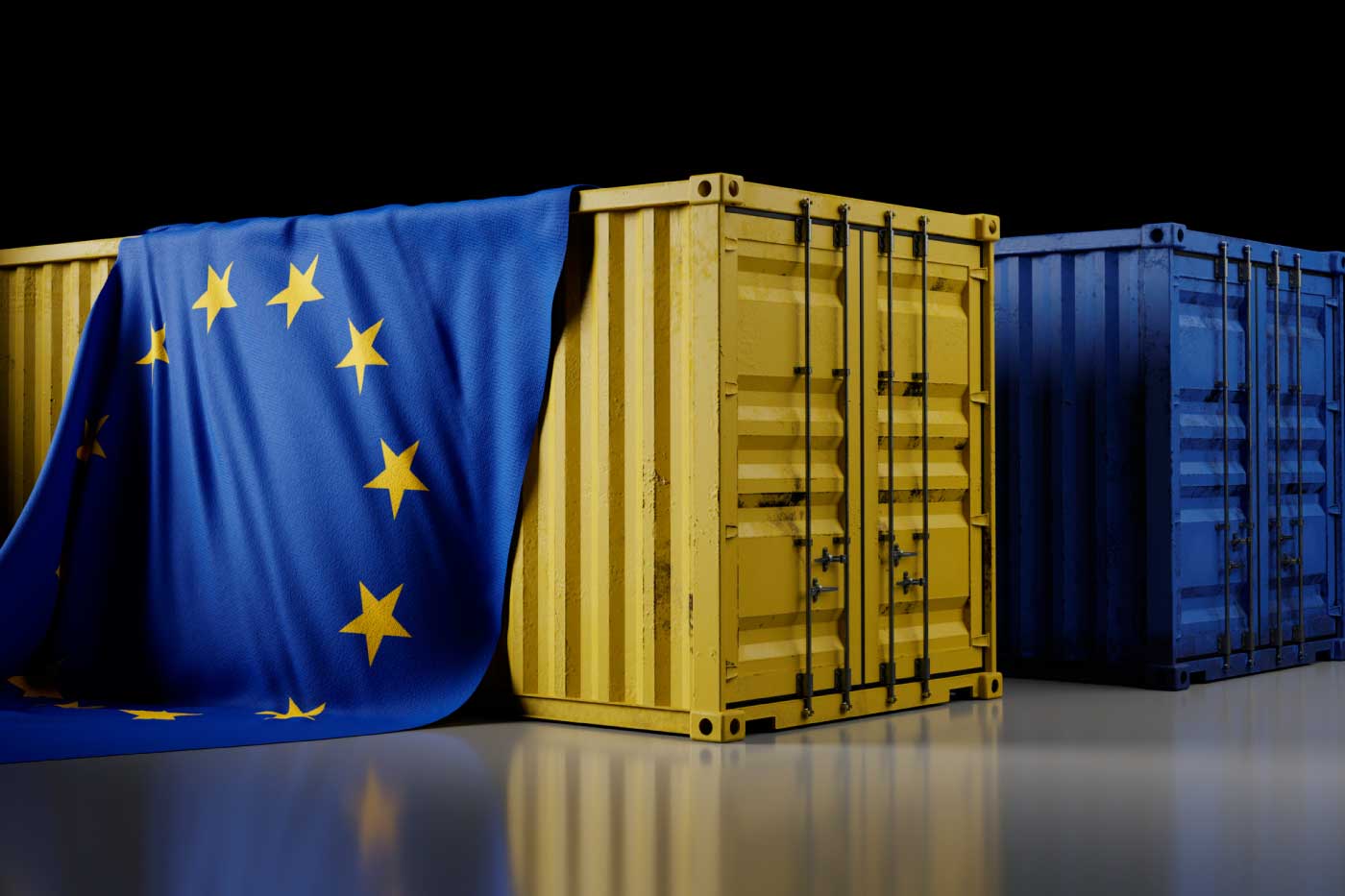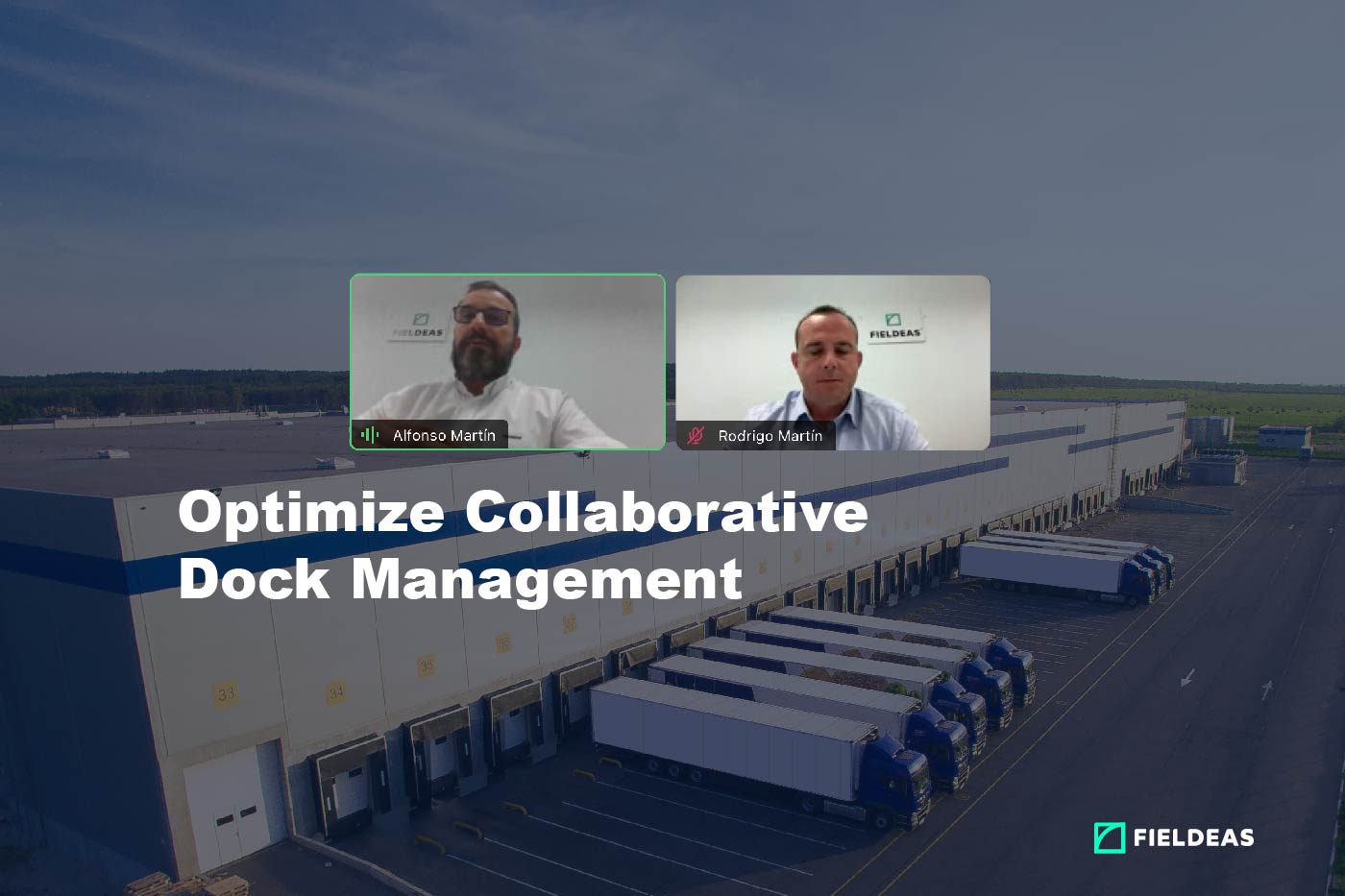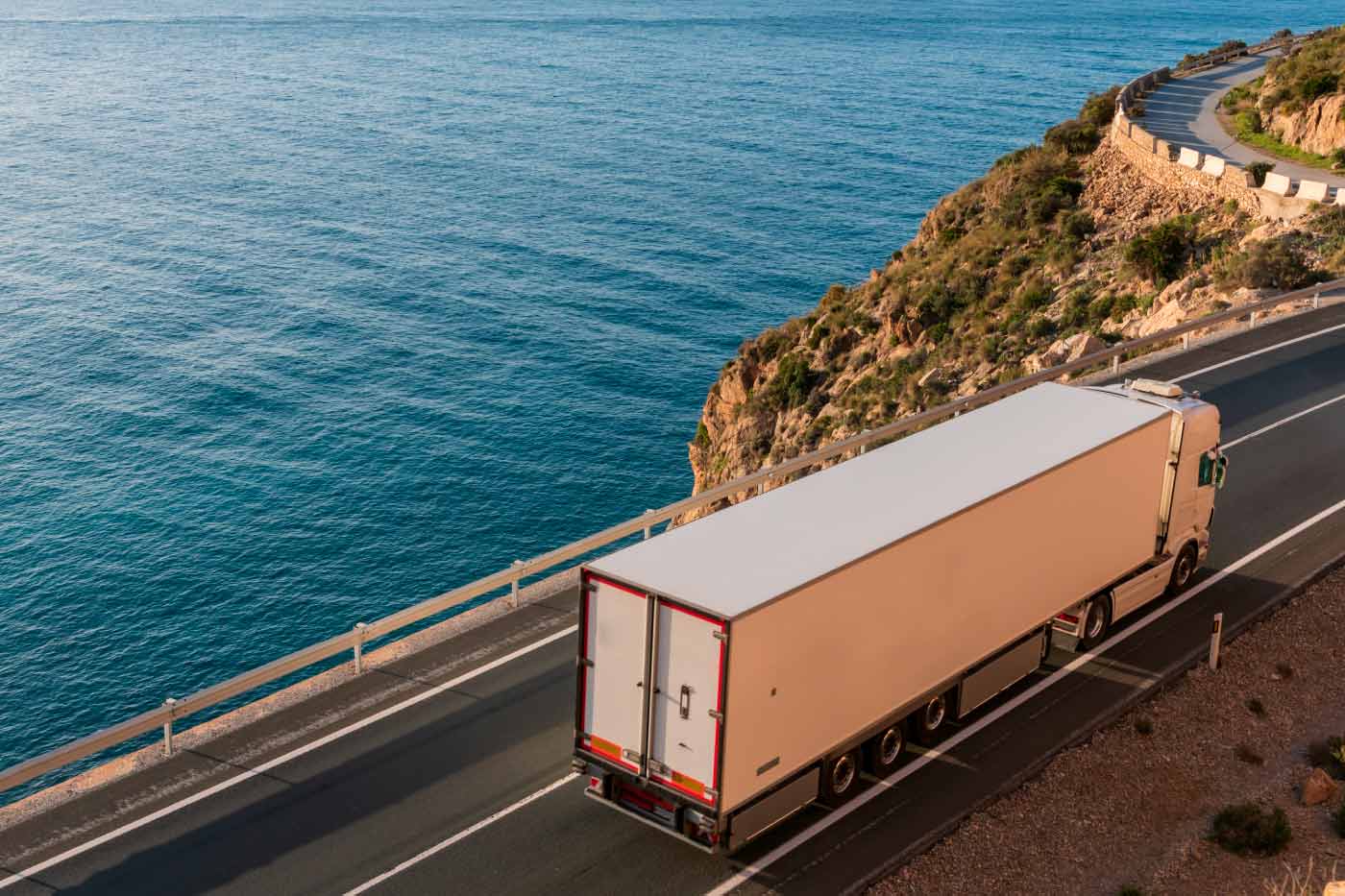On Thursday, February 15, the second webinar in the series “Visibility and Control for Supply Chains on the Move” took place, organized by FIELDEAS Track and Trace under the name “Get ready for eCMR with full legal assurance”.
In this post we will talk about
show
During the virtual meeting, we highlighted the importance of having an electronic CMR system that guarantees compliance with national and EU regulations.
With Óscar López, CEO de FIELDEAS, Rodrigo Martín, Transport and Logistics Manager, and Alfonso Martín, Presales Manager, the webinar focused on analyzing the electronic consignment note as an advanced solution that redefines the way of managing the documentation associated with road freight transport operations, as well as the current regulatory framework and future regulations.
Current status of the electronic transport document
The degree of development of eCMR varies significantly from country to country, with Spain being one of the most developed in terms of regulation.
Although the electronic transport document is accepted throughout our environment, the penetration rate of the solution is currently low due to several factors:
- Regulatory uncertainty, which has complicated the development of the model in recent months.
- Undefinition as to who should lead the change within the chain.
- Rejection of change by chain actors.
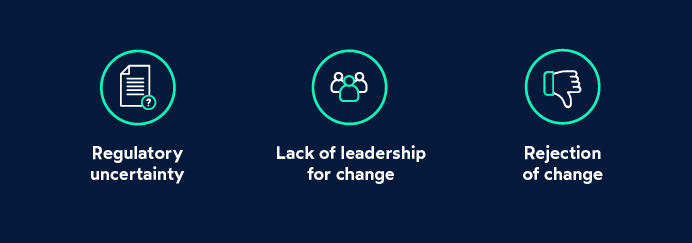
On the other hand, there are multiple eCMR solutions at the technological level, but it is essential to ensure that they comply with the requirements of the regulations in force in order to provide full legal guarantees.
The latest modification of the Land Transport Regulation (ROTT) included the three most relevant aspects that were pending definition in order to fully guarantee the use of eCMR:
- Type of signature to be applied throughout the process.
- Custody and information assurance mechanisms.
- The formula for in-transit verification.
All eCMR solutions on the market must:
- Be able to include all the required information depending on the type of transport. Flexibility is important in this sense, even going beyond the regulation itself and being able to unify the delivery note, the CMR and the transport document in the same file.
- Guarantee the legal treatment at the documentary level. At this point, the type of signature to be applied must be an advanced digital signature, so that it can be associated with the signatory. In addition, the custody of the document must guarantee the integrity of the information.
- Ensure that the information is verifiable by the State Security Forces and Corps.
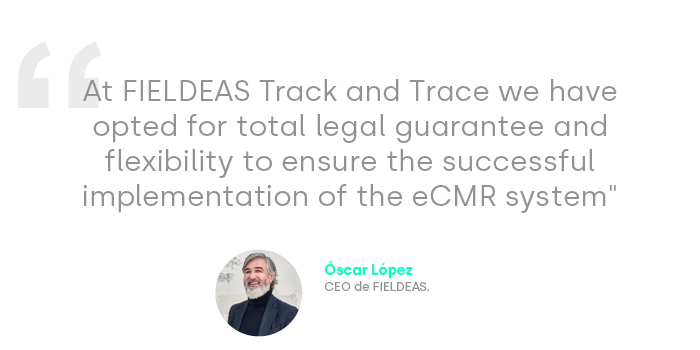
In this sense, as our experts demonstrated during the webinar, FIELDEAS Track and Trace eCMR is the only one on the market that offers a complete legal guarantee by having the capacity to include all the required information depending on the type of transport and to include the advanced digital signature in the processing of the documentation, as well as to guarantee the integrity of the information in the custody of the document.
In addition, the FIELDEAS Track and Trace solution allows cargo information to be verifiable by State Security Forces.
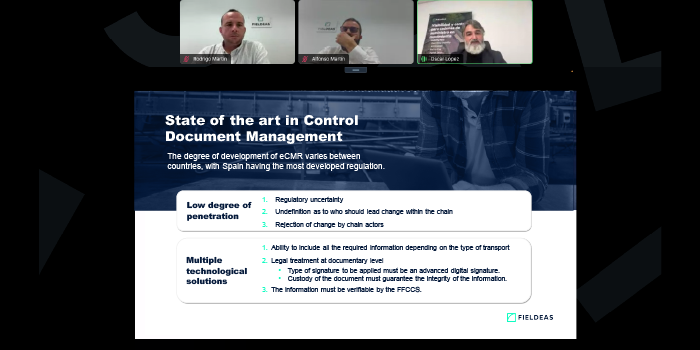
Legislative status of the electronic CMR
On May 19, 1956, the Convention on the Contract for the International Carriage of Goods by Road (CMR) was signed in Geneva, the prelude to what on June 5, 2011 became the electronic CMR or eCMR. In Spain, this protocol entered into force on August 9, 2011.
At present, and at a time of digital revolution, the electronic transport document is affected by multiple regulatory initiatives, which makes it difficult to have a clear regulatory and implementation map.
- Last modification of the ROTT. It clarifies all uncertainties.
- eFTI Regulation. Medium to long term roadmap.
- Regulation (EU) 2020/1055. Without a clear horizon.
- Sustainable Mobility Law. Short-term roadmap.
Thus, with the legislative progress, our experts recommend implement the digital consignment note with legal guarantee before the mandatory requirement enters into forceto save costs, time and drive the cultural change towards digitalization, as the regulatory framework is clear in Spain by eliminating all the uncertainties that have existed up to now.
Main benefits of eCMR with full legal assurance
We also explained that, under the promise of efficiency and sustainability, eCMR has countless benefits for all supply chain players compared to traditional CMR:
- More efficient document management.
- More secure and economical custody of documents.
- Greater efficiency in operations.
- Sustainability, since the 190 million transport documents currently issued would no longer be issued, thus avoiding the felling of 16,279 trees, the emission of 3,000 tons of CO2 and saving 225,000 liters of water.
All in all, our experts estimate that the return on investment (ROI) of implementing an eCMR system, in its most negative estimate, is over 80%, considering all costs associated with the paper document.
This fact, together with the advance of regulation, makes it necessary for companies to address the transformation in order to be fully prepared for the mandatory moment.

Possible scenarios for the application of the digital consignment note
Another key point of the webinar was to analyze the possible application scenarios of the electronic CMR, from the point of view of flexibility.
The typical scenario involves shipper, carrier and consignee. It is a very dynamic process in which these actors interact in an orderly manner and throughout the process there are different actions of verification of events that are accompanied by the advanced digital signature to validate the process.
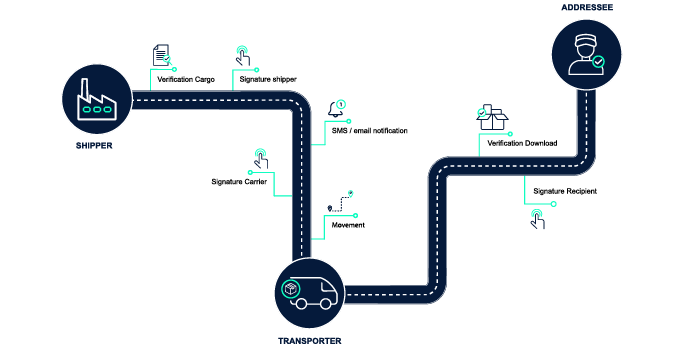
In addition, the entire loading flow is accompanied by a system of notifications that allow real-time reporting of any change in the process or any action required.
For example, in a roadside control, the driver can provide the State Security Forces with all the information since FIELDEAS has generated a QR code with a link to the document with all the information of the process. This avoids penalties and complies with regulations.

Different signature modalities
The FIELDEAS Track and Trace solution offers flexibility by integrating different signature modalities, always ensuring legislative compliance.
- Through your SmartPhone. Biometric signature through our App or our online web channel, which collects all the information of the signature in terms of the trace, speed, acceleration…
- Through OTP. We use the OTP (One-Time Password) mechanism through SMS or WhatsApp channels to ensure that the user is who he/she says he/she is and that the signer can be identified and the process is valid.
- Digital seal. Signing processes can be automated by all actors in the chain through the use of a digital certificate, which saves time in the process.
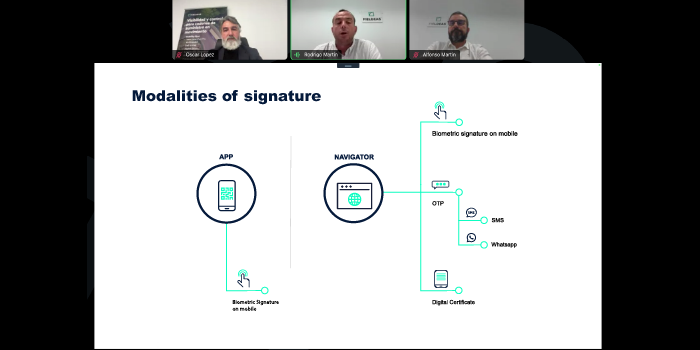
Considering all signature modalities, the main objectives are to have a solution with legal and juridical validity, such as FIELDEAS Track and Trace, to achieve 100% paperless transport and thus reduce environmental and monetary costs.
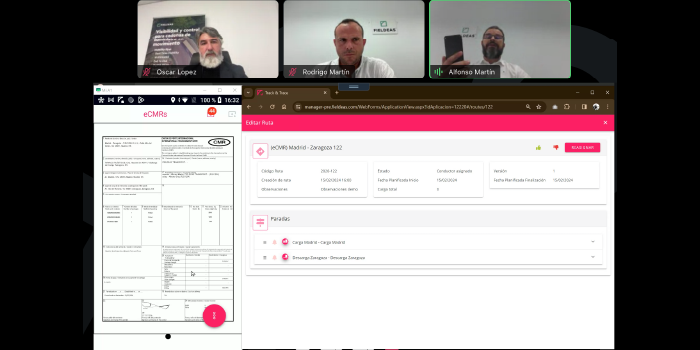
Main conclusions of the eCMR with legal assurance
All in all, the main conclusion of this meeting is that, beyond the date of entry into force of the mandatory eCMR, the ROI of implementing an electronic CMR solution such as FIELDEAS Track and Trace exceeds 80%.Digitizing transport documentation is therefore a key strategy to increase the efficiency, sustainability and flexibility, of transport documentation eficiencia, la sostenibilidad y la flexibilidad of your transport operations.
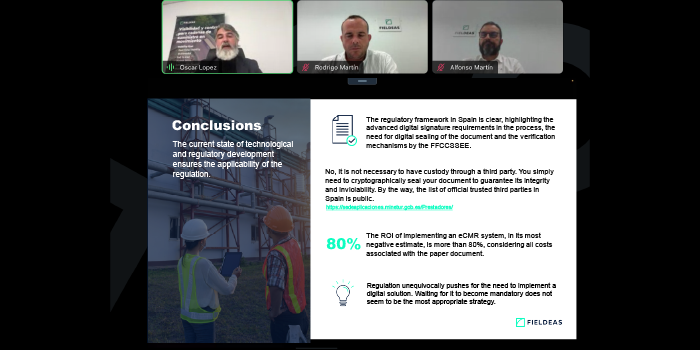
Last FIELDEAS Track and Trace Webinar
After analyzing the optimization of dock management and the eCMR with legal guarantee, the FIELDEAS Track and Trace webinar series will close next Thursday, February 22, at 4:00 p.m. with the third and last meeting, “Management by exception: proactive monitoring of transportation processes.”
This webinar will analyze how the digitization of transportation helps to perform a continuous analysis of data in real time in order to create alerts and notifications automatically to keep all actors in the chain informed. In this way, proactive management and more efficient handling of incidents is achieved, resulting in greater customer satisfaction.

